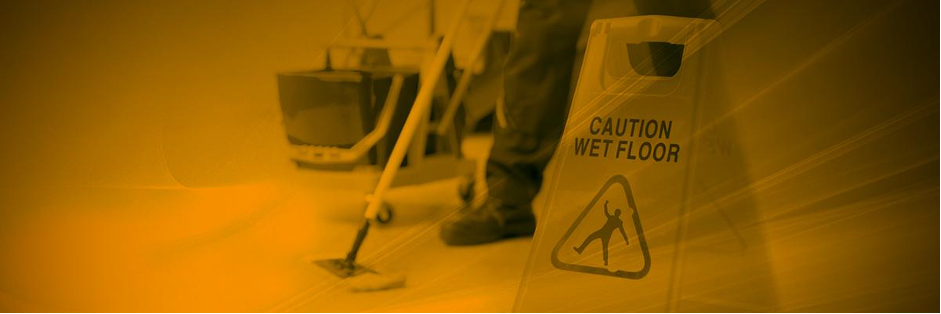Key Advice to Reduce Slips, Trips and Falls in The Workplace

Did you know that slips, trips, or falls had the highest rate of non-fatal injuries to employees in the UK in 2019, as reported in the HSE RIDDOR report? A total of 168,490 employees slipped, tripped, or fell last year.
Insight from The Expert:
Stuart Halliday CMIOSH a Chartered safety and health practitioner and Offshore Medic, works with the Mintra team to advise on our Health and Safety courses and ensure that course content is both compliant with industry standards and relevant to our end users. He gives us his expert advice and top tips on how to reduce slips, trips and falls in the workplace:
“These are quite common incidents. A recent one I was aware of, involved a plastic tag from a coverall, believe it or not! It had been discarded on the floor of a locker room and another worker slipped on it, sustaining significant injuries. This demonstrates the importance of Housekeeping and how a trivial thing, like a discarded piece of rubbish, can have significant consequences if the circumstances are right.
“I think people can become a little lazy when it comes to housekeeping and don’t realise the potential risk. I don’t for one minute believe the gentleman who dropped this litter thought it would result in the injury that followed; however, if he had followed the rules and tidied up the area it would never have happened.
“The injuries often sustained by these STFs can be long lasting and keep you from working for significant amounts of time: an issue for both employer and employee.
“I think this topic is often rolled out as a safety campaign but is then allowed to fall by the wayside. This topic requires everyone to be ‘bought in’ at all time, so thinking about foot placement, weather conditions, deck presentation, holding handrails, steep inclines, three points of contact etc. is essential. Only when we see a significant change in behaviours do we see any significant change in injury rates. It’s human nature to chat and be sociable, especially on the way out to the tea shack and heading back to work, but it’s important to get back into work mode and leave the chat behind.”
We have collated some top tips based on industry experience to highlight and reaffirm the simple, yet important, steps to take to avoid STFs:
Top tips to stay safe:
- Slow and steady - Take your time when going about your business. Rushing from A to B, or when performing tasks, will often result in an STF
- Handy Hint - Hold handrails when provided and, where possible, keep your other hand free
- Be Alert - Be aware of your surroundings and the potential hazards
- Feet First - Ensure you wear suitable footwear that's in good condition
- Concentration Is Key - It's vital to concentrate on what you are doing. Even a momentary lapse of concentration can have serious consequences
Next Steps:
Awareness and training will go so far, but supervisors and crews must encourage positive behaviours and challenge unsafe acts. Talk about the issues, identify “at risk” areas and encompass them in inductions and risk registers.
There are great videos on this topic for further information. Visit the HSE Website:
http://www.hse.gov.uk/slips/index.htm
http://www.hse.gov.uk/pubns/ck4.pdf
The Mintra Slips, Trips and Falls course is a great refresher tool or an introduction to new starts.
Learn more about ‘Slips, Trips and Falls’ by completing the accredited online slips, trips and falls course.
Mintra partners with industry experts to bring you unique insights and practical guidance on the critical topics affecting you and your sector.
Stuart Halliday CMIOSH a Chartered safety and health practitioner and Offshore Medic. Stuart has over 16 years' experience in the oil and gas industry in various roles and in challenging conditions around the world.
Insights & News
At Mintra, we're so much more than just a team—we're a force driving innovation and excellence in maritime training across Europe.
We’re excited to be taking the stage at one of Europe’s leading showcases of organisational learning.
We are delighted to share the exciting news that our People and Culture team has been shortlisted for the prestigious cHeRries Awards!